Last year, I had to pen my own family’s connection to the irreducibly large Jerry John Rawlings after his death. I revealed, much against initial internal conflicts, that while my patrilineal family was provided with a third leg of a sort, my matrilineal family was crippled by the rise of the man Ghanaians once called Junior Jesus.
Now, nearly one year after his death, Rawlings has been shown to continue to incite and inspire others even if he lies beyond the perimeters of the living.
On Sunday, September 3, 41-year-old Guinean colonel Mamady Doumbouya whisked himself and his entourage of vision-hawking soldiers before national TV in Conakry to announce that they had arrested the president, the 83-year-old Alpha Conde. A coup had happened, they affirmed, and they had been moved to suppress a canker in the name of the people
All of these things about usurping power have been claimed in the name of the people and so Doumbouya’s argument was not unique. There have been videos of the streets of Conakry in which people have jumped for joy that Conde is no more their leader but some 48 hours after the coup, it still remains unclear if this coup was by popular request.
If however, you believe an official of the Information Ministry in Guinea who spoke to Ghanaian TV, the report is that Conde’s overthrow from power has been welcomed by a great majority. Political observers will at the same time advise that it is also important that we do not yield to the temptation of conflating spontaneous exhalation with dancing in the wind. In the coming weeks, we will be more certain of the picture when we learn the people’s responses to the decisions made by Colonel Doumbouya and his knights of the roundtable.
From this side looking in, I was obviously fascinated by Rawlings’ role in the making of a coup. Doumbouya’s reference to Rawlings’ causative analysis of coups has not gone unnoticed in Ghana and in the rest of the world.
“If the people are crushed by their elites, it is up to the army to give the people their freedom,” Rawlings said in 1979 when Doumbouya was not even born. But that doesn’t matter; it is the thought that counts.
It is not the first time a coup maker in West Africa has blatantly emulated Rawlings by chance and by choice. In 1997, Johnny Paul Koroma of Sierra Leone was broken out of prison by his colleagues, just like Rawlings in 1979. Koroma also went on to lead a successful coup and called his military junta the Armed Forces Revolutionary Council (AFRC) – the same name by which Rawlings referred to his government in 1979.
Doumbouya has meanwhile given a coup maker’s word that neither he nor the people from the National Committee for Reconciliation and Development will seek to arrogate more power to themselves. This is also, in the interest of the people.
The complexity of Rawlings’ political beliefs is gauged from his time as an omnipotent military leader through to when he was able to metamorphose into a democrat who even wanted to export democracy to others in the West African sub-region. After his 21 years at the helm, it is not often discussed for the sake of political history or philosophy, when Rawlings stopped being one of “the people”. He is remembered to this day as a class conflict enthusiast.
This is in spite of the fact that his detractors are quick to point out that Rawlings’ calls for “probity and accountability” as well as giving the poor their fair share, began to ring hollow from the mid-198os.
Did he become an elitist? That is a very difficult question to answer. Rawlings retained throughout his life, the arrestive abilities of his swashbuckling charm and the glorious strength to embody a myth he zealously perpetuated. No matter how high he climbed the sociopolitical ladder, and no matter how farther he stood from the streets, “the people” still believed he was one of them. They believed when he referred to “the people”, it was to them, the low earners and the marginalized.
I captured this in an earlier piece:
Wealth redistribution was the only thing on his agenda because Rawlings believed, perhaps until death, that there was something fundamentally immoral about the state of a hungry working class. Unlike military dictators you may be familiar with, Rawlings was an adequately educated military officer whose pull towards populism was not as ideological as it was pragmatic.
Growing up from the 90s in Ghana, I have come to know that there are those who are possessed by the nostalgic promise of Rawlings’ times and these people did not even witness Ghana’s 1996 elections. That is how successful The Rawlings Myth is.
Jerry Rawlings treated his political career like his Biblical namesake John The Baptist who heeded to a righteous call in the wilderness. If I have the license to commit further theological comparisons, I would even cite the story of another of his namesakes, Jeremiah, the Old Testament prophet who also threw himself into an adventure on behalf of the downtrodden.
How was he so successful in perpetuating the myth? In other words, how did Rawlings’ words become quotable for a former French legionary soldier in Guinea?
My theory is that as the last coup maker of a relatively stable country in Africa, Rawlings’ government-collapsing philosophy seems to serve as the gold standard. Ghana is revered by so many Africans, not only for its past and Kwame Nkrumah but also for its present.
And for the likes of Doumbouya, if stability is the goal, it is only fair to emulate the blueprint that seems to have worked.



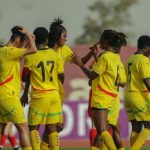
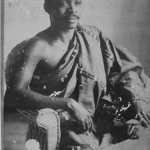




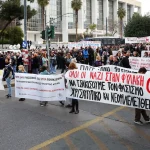


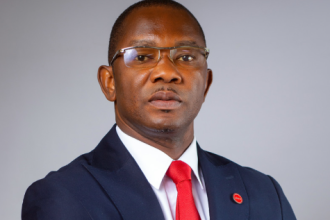
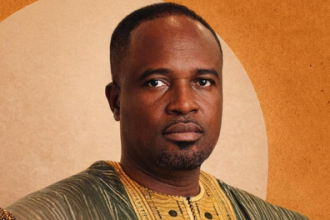
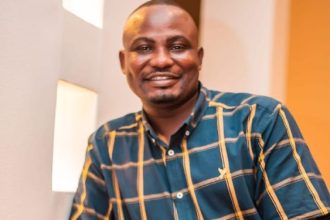
Wao! An EXCELLENT PIECE. Nothing to add, nothing to subtract. Legends live forever. You are highly cherished, Jerry John Rawlings.
Thanks, Nii Sarpei.
Joe Sagu SAGOE
– a Journalist